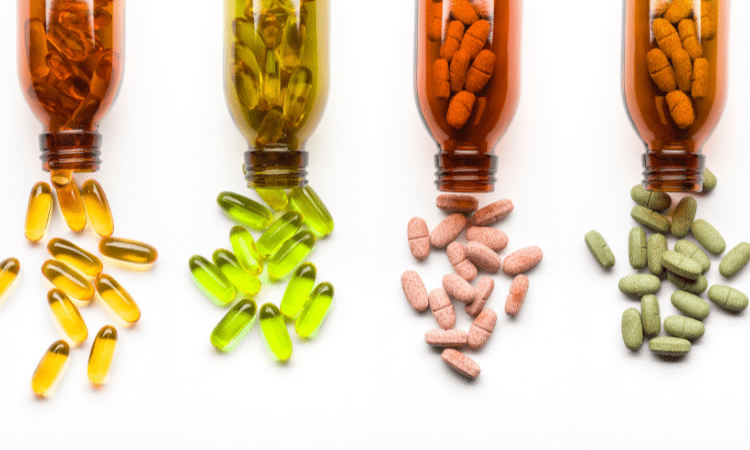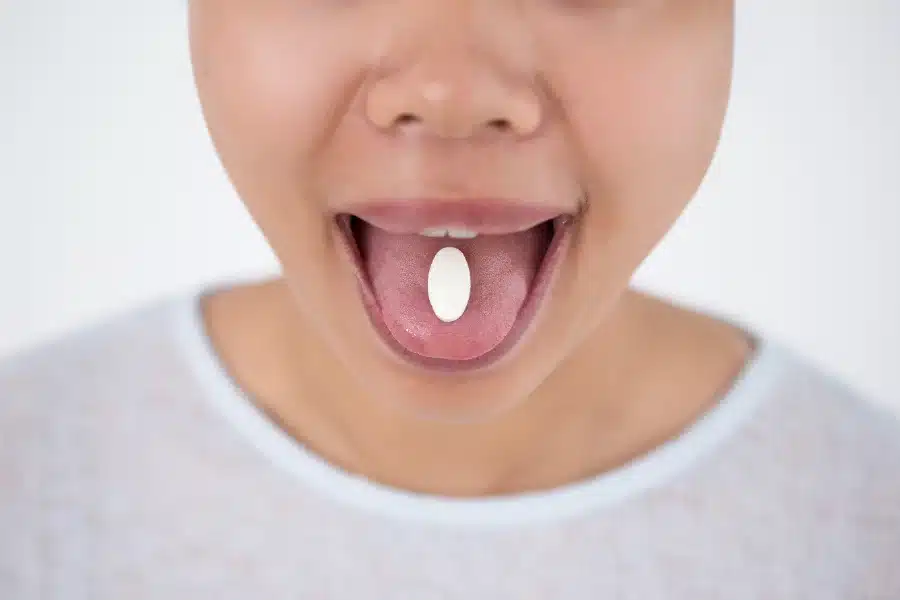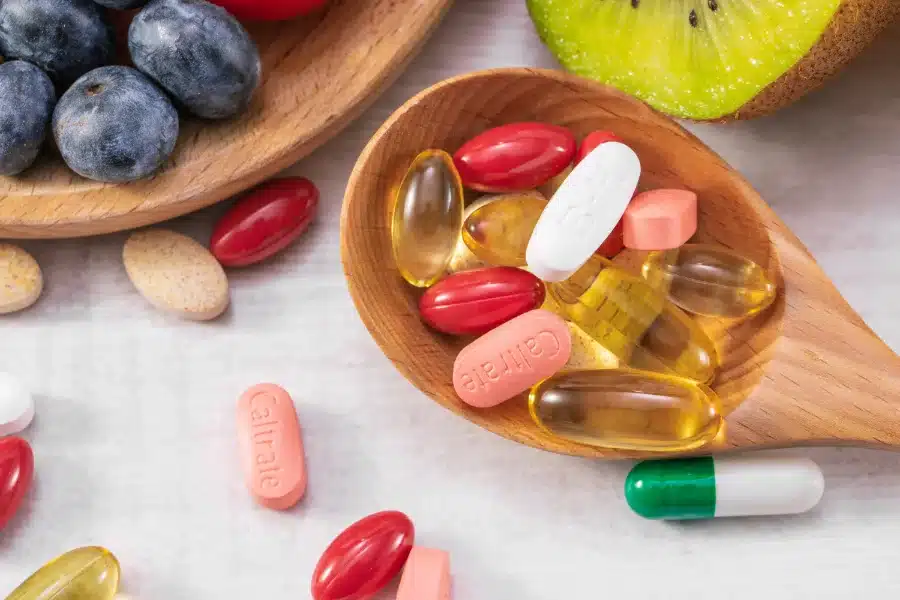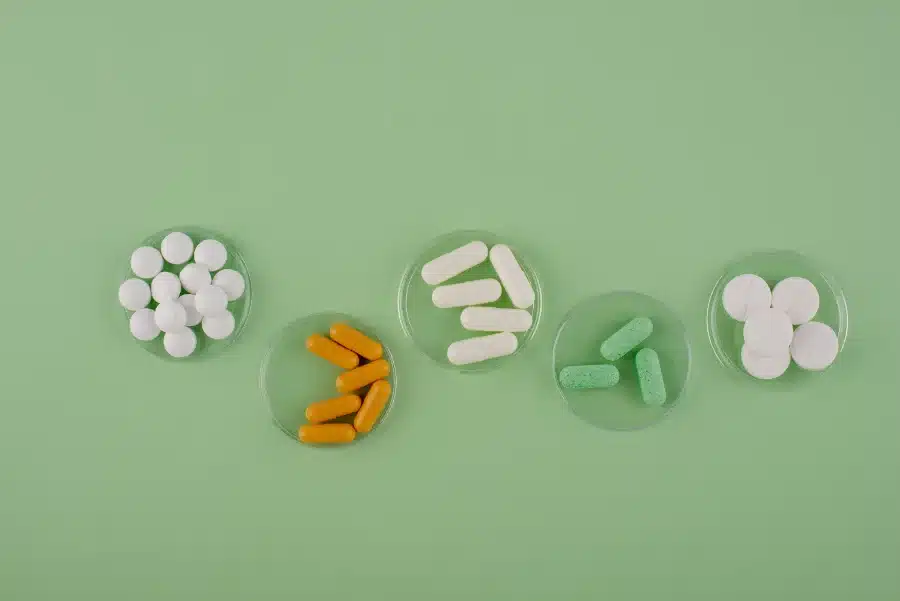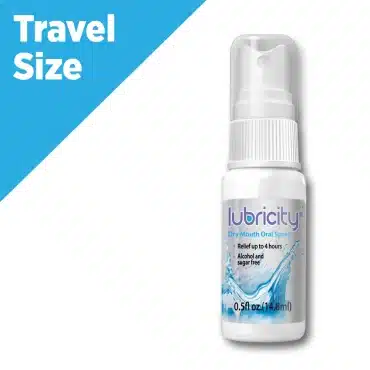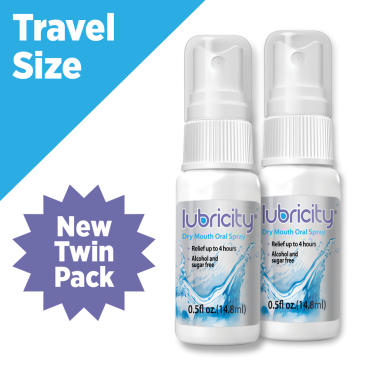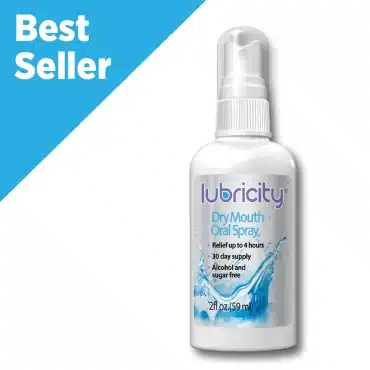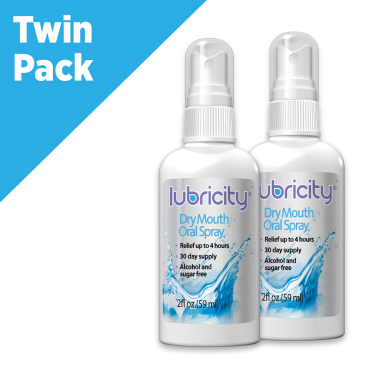Introduction
Are you tired of experiencing dry mouth after taking certain supplements? You’re not alone. Many individuals face this discomfort, and it can be quite bothersome. Dry mouth, or xerostomia, is a condition where there is a lack of saliva production, leading to a dry and sticky feeling in the mouth.
A dry mouth can be caused by a range of factors, and one of them is the side effects of certain supplements. It’s important to be aware of these supplements in order to make informed decisions about your health. Let’s take a closer look at some supplements that have been reported to cause dry mouth. By understanding their potential effects, you can consider alternatives if needed.
Key Highlights
- Dry mouth is a common side effect of certain supplements, which can lead to discomfort and potential health risks.
- Some of the most common supplements linked to dry mouth include vitamin D, fish oil, amino acids.
- Supplements can affect saliva production, leading to dry mouth and related symptoms.
- It is important to be aware of the potential side effects of supplements and consult a healthcare provider if experiencing dry mouth or other symptoms.
- Maintaining overall health, including a balanced diet and regular hydration, can help minimize the risk of dry mouth from supplements.
Supplements are dietary products that are taken to supplement the nutrients obtained from food. They are widely used for their potential health benefits, such as improving overall well-being, boosting immune function, and supporting specific bodily functions. However, it is important to be aware that some supplements can have unintended consequences, including causing dry mouth.
In this blog, we will explore the connection between supplements and dry mouth, understand how supplements can affect saliva production, and discuss common types of supplements that have been linked to dry mouth. We will also delve into the role of medications versus supplements in causing dry mouth and provide preventive measures and management strategies to alleviate dry mouth symptoms caused by supplements.

Before diving into the specific supplements that can cause dry mouth, it is important to have a clear understanding of what dry mouth is and how it can be influenced by dietary supplements. Dry mouth occurs when there is a decrease in saliva production, resulting in a dry, sticky feeling in the mouth. Saliva is essential for maintaining oral health as it helps to lubricate the mouth, neutralize acids, and wash away food particles and bacteria. Saliva plays a crucial role in maintaining oral health by lubricating the mouth, aiding in digestion, and preventing tooth decay. While dry mouth can be caused by various factors, including certain medications and medical conditions, it may also be a side effect of certain supplements.
Certain dietary supplements have been associated with a decrease in saliva production, leading to dry mouth. This can occur due to the ingredients or components present in the supplements, which can interact with the body’s natural processes and affect saliva production.
The Connection Between Supplements and Dry Mouth
Several specific supplements have been identified as potential causes of dry mouth. One such supplement is vitamin D. While vitamin D is essential for various bodily functions, including bone health and immune function, high doses of vitamin D supplements have been associated with dry mouth as a potential side effect.
Another supplement that has been linked to dry mouth is fish oil. Fish oil supplements, rich in omega-3 fatty acids, are commonly taken for their potential cardiovascular benefits. However, some individuals may experience dry mouth as a side effect of fish oil supplementation.
Amino acid supplements, often used by athletes and fitness enthusiasts for muscle recovery and growth, have also been reported to cause dry mouth in some individuals. It is important to note that individual responses to supplements can vary, and not everyone may experience dry mouth as a side effect.
How Supplements Affect Saliva Production
Supplements can affect saliva production through various mechanisms. For example, vitamin C supplements, often taken for their immune-boosting properties, have been associated with a decrease in saliva production in some individuals. This decrease in saliva production can lead to dry mouth symptoms.
Fatty acid supplements, such as omega-3 fatty acids found in fish oil, can also impact saliva production. While omega-3 fatty acids are known for their potential cardiovascular benefits, excessive intake of these supplements may disrupt the normal functioning of salivary glands and result in dry mouth.
Common Types of Supplements Linked to Dry Mouth
Dry mouth can be a side effect of various supplements that are commonly used by individuals seeking to support their health and well-being. Some of the most popular supplements that I have found while researching that have been linked to dry mouth include vitamin D, fish oil, amino acids, and calcium supplements.
When considering the use of these supplements, it is important that you should be aware of the potential side effects, including dry mouth. While dry mouth may not be experienced by everyone taking these supplements, it is advisable to monitor for any symptoms and consult a healthcare provider if necessary.
Vitamin Supplements and Their Side Effects
Vitamin supplements, including vitamin K and vitamin C, are commonly taken for their potential health benefits. However, it is important to be aware of the potential side effects, including the risk of dry mouth.
- Vitamin K: High doses of vitamin K supplements have been associated with an increased risk of heart disease in some individuals.
- Vitamin C: Excessive intake of vitamin C supplements can lead to an upset stomach, diarrhea, and a decrease in saliva production, resulting in dry mouth symptoms.
- Blood thinners: It is important to note that vitamin supplements, particularly vitamin K, can interact with certain blood thinners, potentially affecting their effectiveness.
Specific Supplements That May Cause Dry Mouth
- Anticholinergic Supplements: Some supplements with anticholinergic properties, such as certain antihistamines, muscle relaxants, and antidepressants, can contribute to dry mouth. These substances work by blocking the action of acetylcholine, a neurotransmitter responsible for stimulating saliva production.
- Decongestants: Decongestant supplements, commonly used to relieve nasal congestion, can have drying effects on the body, including the mouth. They work by constricting blood vessels, which can reduce blood flow to the salivary glands, resulting in decreased saliva production.
- Diuretic Supplements: Diuretics are substances that increase urine production, often used to treat conditions like high blood pressure. Some diuretic supplements can indirectly cause dry mouth by reducing overall fluid volume in the body, including saliva production.
- Magnesium Supplements: While magnesium is an essential mineral for many bodily functions, some individuals have reported experiencing dry mouth as a side effect of magnesium supplements. However, it’s important to note that this effect may vary among individuals.
- Stimulant Supplements: Certain stimulant supplements, including those containing caffeine or ephedrine, can lead to dry mouth due to their dehydrating effects on the body. These substances can increase urine production and decrease saliva flow.
- Antacids: Antacids are frequently used to relieve symptoms of heartburn and acid reflux. However, certain antacids containing aluminum can reduce saliva production, resulting in a dry mouth.
- Muscle Relaxants: Muscle relaxants are prescribed to treat various conditions that cause muscle spasms or tightness. Unfortunately, they can also affect saliva flow and lead to dry mouth.
You may also check:
A Lesser-Known Consequence of Nasal Endoscopy
Can Magnesium Supplements Cause Dry Mouth?
Magnesium supplements are commonly used to support various bodily functions, such as muscle and nerve health, but can they cause dry mouth? While dry mouth is not a known side effect of magnesium supplementation, it is essential to consider individual variations and consult with a healthcare professional if you experience any concerning symptoms.
Antihistamines and Decongestants as Supplements
Antihistamines and decongestants, commonly used to relieve allergy symptoms and nasal congestion, can also be taken as supplements. These medications can have various side effects, including dry mouth. The anticholinergic properties of antihistamines and decongestants can inhibit saliva production, leading to dry mouth symptoms. It is crucial to emphasize that these substances are controlled by the FDA as prescription medications and should be utilized only with the supervision of a healthcare professional.
Diuretic Supplements and Their Impact on Hydration
Diuretic supplements, such as milk thistle, are often used to promote liver health and enhance detoxification. However, these supplements can increase urine production and lead to dehydration if not accompanied by adequate fluid intake.
Dehydration can contribute to dry mouth symptoms, as a lack of proper hydration can decrease saliva production. It is important to maintain a healthy, balanced diet and ensure sufficient fluid intake when using diuretic supplements to minimize the risk of dry mouth and related complications.
Incorporating hydrating foods and beverages into your diet, such as fruits, vegetables, and water, can help maintain proper hydration levels and alleviate dry mouth symptoms.
The Role of Medications vs. Supplements in Causing Dry Mouth
Dry mouth can be caused by both medications and dietary supplements. Medications, such as prescription drugs, are known to have various side effects, including dry mouth. Similarly, some dietary supplements have been associated with dry mouth as a potential side effect. When considering the use of supplements, it is important to weigh the potential benefits against the risks and consult a healthcare provider if experiencing any adverse effects.
Comparing Side Effects of Supplements and Prescription Medications
While both supplements and prescription medications have the potential to cause dry mouth, it is important to compare the side effects associated with each.
Supplement | Potential Side Effects |
Fish oil supplements | Dry mouth, upset stomach, diarrhea |
Calcium supplement | Dry mouth, constipation |
Blood thinners | Dry mouth, increased bleeding risk |
Potential Side Effects of Dry Mouth
A dry mouth can have several negative effects on oral health if left unaddressed. Without adequate saliva, the mouth becomes more susceptible to tooth decay, cavities, gum disease, bad breath, and oral infections. Additionally, dry mouth can impact speech, taste perception, and the ability to comfortably wear dental appliances like dentures, braces, or Invisalign.
Managing Dry Mouth Caused by Supplements
If experiencing dry mouth symptoms from supplements, there are several strategies that can help manage and alleviate the discomfort:
- Hydration strategies: Ensuring regular hydration by drinking water or chewing sugar-free gum can help stimulate saliva production and relieve dry mouth.
- Alternative supplements: Exploring alternative supplements that do not cause dry mouth can provide similar health benefits without the unwanted side effect.
- Health benefits: Assessing the overall health benefits of the supplement versus the impact of dry mouth can help determine whether the supplement is worth continuing or if an alternative approach is necessary.
If you are taking any of the aforementioned supplements and experiencing dry mouth, it is advisable to consult with a healthcare professional. They can evaluate your symptoms, adjust your supplement regimen if necessary, and recommend strategies to alleviate dry mouth discomfort. To stay properly hydrated, it’s essential to drink plenty of water throughout the day. Additionally, it’s crucial to steer clear of caffeine, alcohol, and smoking as these substances can further contribute to dehydration. If you find yourself experiencing dry mouth, there are a few remedies you can try.
Hydration Strategies to Counteract Dry Mouth
Staying properly hydrated is essential for counteracting dry mouth caused by supplements. Here are some hydration strategies that can help alleviate dry mouth symptoms:
- Omega: Consuming foods rich in omega-3 fatty acids, such as fatty fish or chia seeds, can help promote saliva production and alleviate dry mouth.
- Probiotics: Incorporating probiotic-rich foods, such as yogurt or fermented vegetables, into your diet can support oral health and minimize dry mouth symptoms.
- FDA: Ensure that any hydration strategies, including the use of supplements or alternative remedies, comply with regulations set by the United States Food and Drug Administration (FDA) to ensure safety and efficacy.
From the research I have done, supplements like echinacea and fish oil may have a dual effect wherein they can be both hydrating but also drying to the mouth when consumed in excess.
By prioritizing hydration and incorporating these strategies into your routine, you can minimize the discomfort of dry mouth caused by supplements.
Alternative Supplements with Fewer Side Effects
If experiencing dry mouth as a side effect of supplements, it may be beneficial to explore alternative supplements with fewer side effects. Here are some alternatives to consider:
- Echinacea: Echinacea, a botanical supplement commonly used for immune support, has been reported to cause dry mouth in some individuals. Exploring alternative immune-boosting supplements may be beneficial.
- Zinc: Zinc supplements have been associated with dry mouth as a potential side effect. Considering alternative sources of zinc, such as dietary changes or other supplements, may help alleviate dry mouth symptoms.
- Botanicals: Being mindful of the potential side effects of botanical supplements and exploring alternative approaches or natural remedies can provide similar health benefits without the risk of dry mouth.
It is important to consult a healthcare provider before making any changes to your supplement regimen to ensure safety and efficacy.
Herbal Supplements Known to Produce Saliva
While certain herbal supplements may contribute to dry mouth symptoms, there are others that are known to promote saliva production. Here are some herbal supplements that may help alleviate dry mouth:
- Echinacea: While known for its potential side effect of dry mouth, echinacea has also been used traditionally to stimulate saliva production.
- Coenzyme: Coenzyme Q10 supplements have been reported to increase saliva production in some individuals.
- Ginseng: Ginseng, a popular herbal supplement, has also been associated with increased saliva production.
- Turmeric: Turmeric is a popular supplement that contains curcumin, which is known for its anti-inflammatory and antioxidant properties. It has been studied for its potential health benefits, such as reducing inflammation, improving brain function, and aiding in digestion. Turmeric supplements are often used to support overall health and well-being.
- Ashwagandha: An ancient medicinal herb that has been used for centuries in Ayurvedic medicine. It is known for its adaptogenic properties, helping the body to manage stress and anxiety. Ashwagandha is also believed to improve sleep quality and support overall well-being. This powerful herb has gained popularity as a natural supplement for those seeking to reduce stress and promote relaxation.
It is important to note that individual responses to herbal supplements can vary, and consulting a healthcare provider is advisable before incorporating any herbal supplements into your routine.
Managing with Lubricity Dry Mouth Spray
First, consider using saliva substitutes like Lubricity Dry Mouth Spray or oral moisturizers like Lubricity Xtra to help lubricate the mouth and provide relief. These products use Hyaluronic Acid known as a natural Lubricant that is naturally found in our eyes, skin, and joints. Hyaluronic acid is good for retaining water and is very useful for dry mouth, providing a slippery layer that coats the buccal mucosa, thus creating the moisture that is so desperately needed when dry mouth takes hold.
Furthermore, incorporating the use of a dry mouth spray can provide instant relief by moistening the mouth. Lastly, don’t forget to prioritize good oral hygiene practices, including regular brushing and flossing, to prevent any dental issues associated with dry mouth.
Conclusion
In conclusion, understanding the impact of supplements on dry mouth is crucial for maintaining overall health. Certain supplements can disrupt saliva production, leading to discomfort and oral health issues. By choosing supplements wisely, staying hydrated, and making lifestyle adjustments, you can minimize dry mouth symptoms. Prioritize your well-being by being informed and proactive about the supplements you consume. If you have concerns or need personalized advice, don’t hesitate to seek professional guidance for optimal health management.
Download the List of Active ingredients that cause dry mouth
FAQ
Supplements that are most likely to cause dry mouth include vitamin D, calcium, magnesium, melatonin, and calcium supplements. These supplements have been associated with dry mouth as a potential side effect.
Switching supplements may improve dry mouth symptoms in some individuals. Exploring alternative supplements that are less likely to cause dry mouth, such as fish oil, amino acids, vitamin K, probiotics, and echinacea, may be beneficial.
Certain natural remedies may help counteract dry mouth symptoms caused by supplements. These include incorporating herbal supplements known to promote saliva production, consuming foods rich in fatty acids and whole grains, and ensuring sufficient intake of omega-3 fatty acids and zinc. If you are looking for something to use to get instant relief, look into Lubricity and Lubricity Xtra.
What do customers say about Lubricity Dry Mouth Spray?


